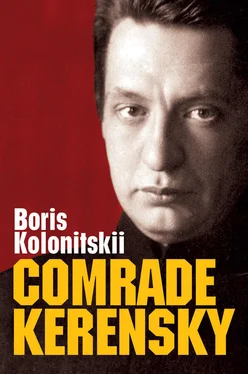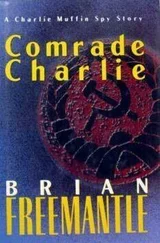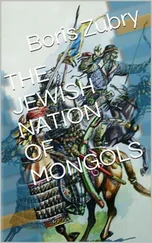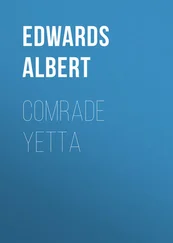His public speeches made the young lawyer a true celebrity, as the leaders of the Trud group noted. Some had been clients of Kerensky when he made the case for the defence in the trial of the All-Russia Peasant Union. In the autumn of 1910 prominent Trudoviks suggested he should run for election to the State Duma. Despite his links with the Socialist Revolutionaries, Kerensky accepted their suggestion and was elected as a deputy from the second municipal curia of Volsk in Saratov province, which had a reputation as a radical town. 85Kiriakov, who is keen to emphasize the Leader’s links with the Socialist Revolutionaries, stresses that his election to the Duma was forced on him. ‘He had to go underground, to camouflage himself.’ 86His biographers try hard to demonstrate that, even as a deputy, Kerensky remained a radical. ‘In his speeches on agrarian issues, as well as those concerning workers, budgets and other matters, he was always vigilant in the interests of democracy and openly declared himself a socialist.’ 87
Kerensky’s status as a member of the Duma strengthened his authority in radical circles and opened up new opportunities for political action. The young politician could never have played such a role in the February Revolution had he not been a deputy, but, within a few months of the overthrow of the monarchy, the Duma, elected on a ‘qualified’ franchise, was losing popularity with the masses, who were moving to the left. Some of Kerensky’s biographers prefer to describe his ‘parliamentary’ period as forced upon him, and even as an ordeal: ‘He felt fettered by his work in the Duma, and the need for constant interaction with the bourgeois parties was burdensome and irritating.’ They emphasize that his speeches, which sounded ‘trenchant and bold’ within the walls of the Tauride Palace, met with ‘hostility from the vast majority of those elected to the restricted-franchise Duma’ but elicited ‘a fervent response from the ranks of democracy’. 88Kerensky’s Odessan biographer highlights his unique situation in the Duma, contrasting the radical politician with the other deputies.
He became the conscience of the Fourth Duma, one of its few bright spots. At moments when Russia’s prematurely born parliament was crushed by contempt and arrogance from the ministerial box, when the tsar’s lackeys from the podium of the State Duma derided the people’s representatives with such maxims as the notorious ‘that is how it was, and that is how it will be!’, only one voice rang out invariably firm, invariably bold and confident. That was the voice of A. F. Kerensky….
The five years of Kerensky’s battle for freedom and truth are all that can redeem the five years of lassitude and impotence of the Fourth State Duma. 89
The members of the Provisional Government, the Executive Committee of the Petrograd Soviet, and the former deputies of the State Duma – Mensheviks, Trudoviks, progressives and Constitutional Democrats – would hardly have concurred with that judgement. Nor would anyone who read the Duma reports attentively. Nevertheless, some readers of the era of revolution who were only just beginning to take an interest in politics might well have believed that Kerensky was the only real representative of the people in the restricted-franchise and ‘bourgeois’ Duma.
During the revolution, Kerensky himself described his work in the State Duma as a constant struggle against the enemies of the people. ‘For five years from this rostrum I battled with and denounced the old government. I recognize enemies of the people and I know how to deal with them,’ he declared in his speech of 26 March to the soldier’s section of the Petrograd Soviet. 90
The young lawyer very soon became the Trudoviks’ principal speaker. His meteoric rise caused alarm to some of the old guard of the Trudovnik group. Armand mentions that they periodically discussed plans to mount resistance to ‘Socialist Revolutionary domination’, but Kerensky’s authoritativeness, she claims, frustrated this. ‘His forcefulness won naturally, without tension.’ 91
Kerensky’s Duma speeches were quite dissimilar to the businesslike addresses of parliamentarians discussing budget and legislative bills. From the rostrum of the Duma, just as in court, he passionately denounced the regime and its servants. Kerensky was addressing his speeches not to the deputies and ministers but to the whole of Russia. The speeches were brilliant, emotive, sometimes defiant. Nor was his behaviour in the Duma chamber always in accord with standards of parliamentary decorum. An official observing the sessions noted, ‘The Duma chairman did not react to a whistle, directed at the representative of the government, which echoed round the chamber, although everybody had seen that it was Member of the Duma Kerensky who was responsible.’ 92Unsurprisingly, he was regarded as the left-wing enfant terrible of the Duma. 93
The right-wingers reacted angrily to Kerensky’s impassioned speeches. There were scenes. Those chairing the sessions interrupted the speaker, deprived him of the right to speak or debarred him for several sessions. His reputation as a troublemaker could mean that quite unforeseen meanings could be read into the most innocent expressions. There was even a joke that the official preamble, ‘Honourable members of the State Duma …’, had caused the chairman to react with, ‘Member of the Duma Kerensky, I am issuing you with a first warning.’ Armand writes proudly about his insubordinate behaviour and the reaction it evoked. 94His aggressive manner only increased respect for Kerensky in radical circles.
It is hardly surprising that his speeches provoked conflict and attracted the attention of the press. Journalists in the Duma who were hungry for sensations often reported them. Kerensky became popular and was much quoted. His influence grew, and he began chairing meetings of the Trudoviks. From 1915 he was officially their leader. 95
There were times when Kerensky was perceived as the most prominent and best known of all the left-wing deputies. Nikolai Chkheidze, the leader of the Menshevik group, was a lacklustre orator, incapable of firing up his colleagues or attracting the attention of journalists. His adherence to Marxist orthodoxy prevented him from engaging in tactical negotiations with ‘bourgeois’ groups, and, as a result, the more dynamic Kerensky sometimes conducted negotiations on behalf of both the left-wing groups – a further boost to his standing.
Not everyone was taken by the histrionic style of Kerensky’s speeches, which ran counter to traditional expectations of parliamentary oratory. Senator Nikolai Tagantsev remembered them as ‘demagogic’, and, while not denying that he had a gift for it, considered that his rhetoric was fit only for making speeches at protest rallies. 96In 1917, of course, that kind of rhetoric was just what was needed to enthuse huge rallies. Leonidov lavishes praise on Kerensky’s oratorical style. ‘You will not find exquisite honing in the speeches the present minister made in the Duma, nor will you find oratorical flourishes. Everything is improvised. These are not speeches in the narrow, commonly understood sense: they are the howls of a rebellious, bleeding heart, the great, ardent heart of a true tribune of the people.’ 97
Popular in radical circles, the Duma deputy found himself invited to all manner of meetings, assemblies and conferences. In 1913 he was elected chairman of the Fourth All-Russia Congress of Trade and Industry Workers, 98which elicited derisive comment from right-wingers. In the Duma, Nikolai Markov characteristically declared, ‘Deputy Kerensky is, to the best of my knowledge, and to yours too, a lawyer. At all events, not just a ledger clerk. Unless a ledger clerk of a Jewish Qahal. But only in a figurative sense … Can we really allow the propaganda of the likes of Mr Kerensky in the whole society [ sic ] of poorly educated people?’ 99In radical circles, such speeches by the hated far-right supporters of the Black Hundreds only burnished the halo of the Trudoviks’ leader. Many people living in Russia saw Kerensky as their own defence lawyer. He received many letters from ‘unimportant people’ exposing abuses and injustices and hoping he would intercede.
Читать дальше









